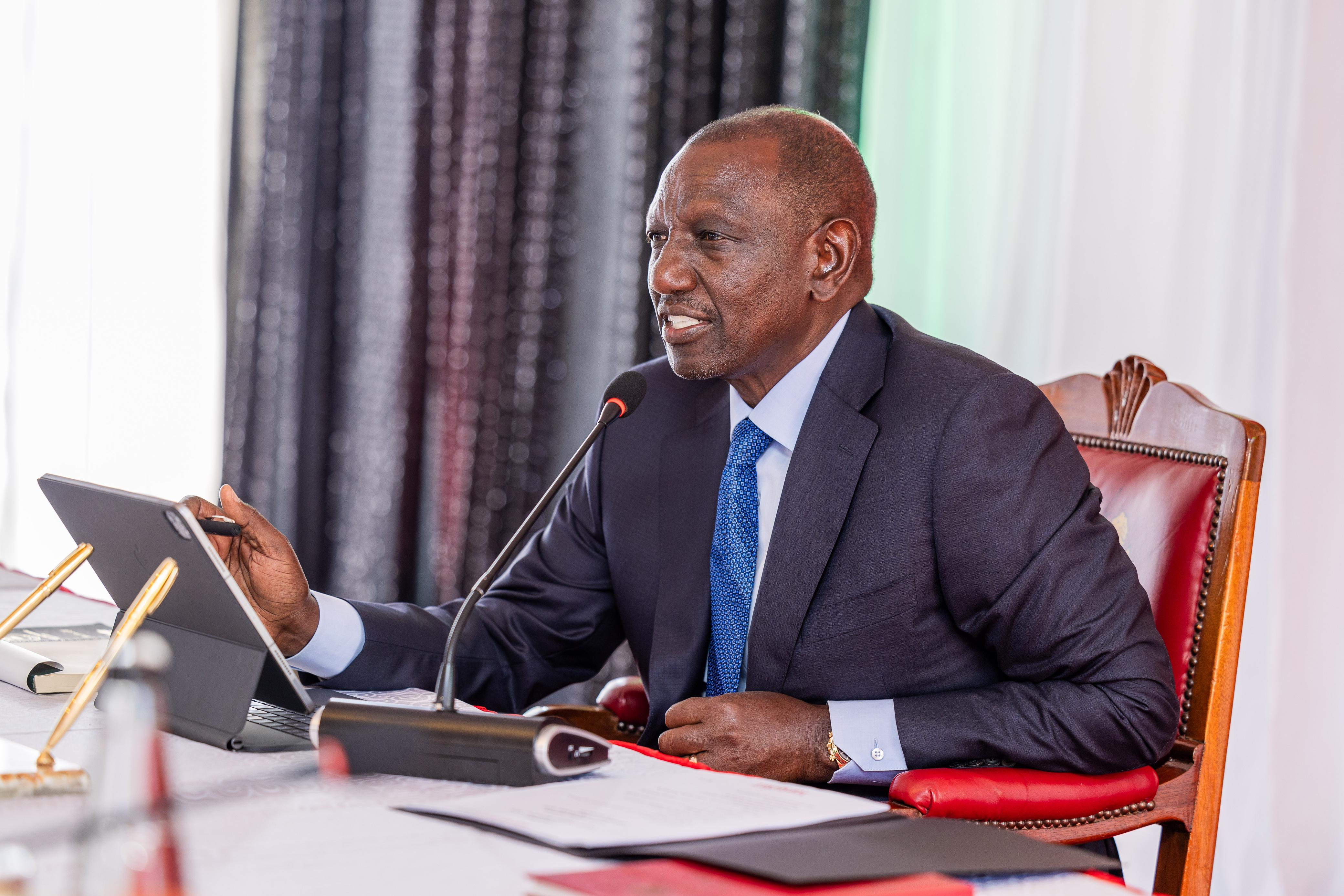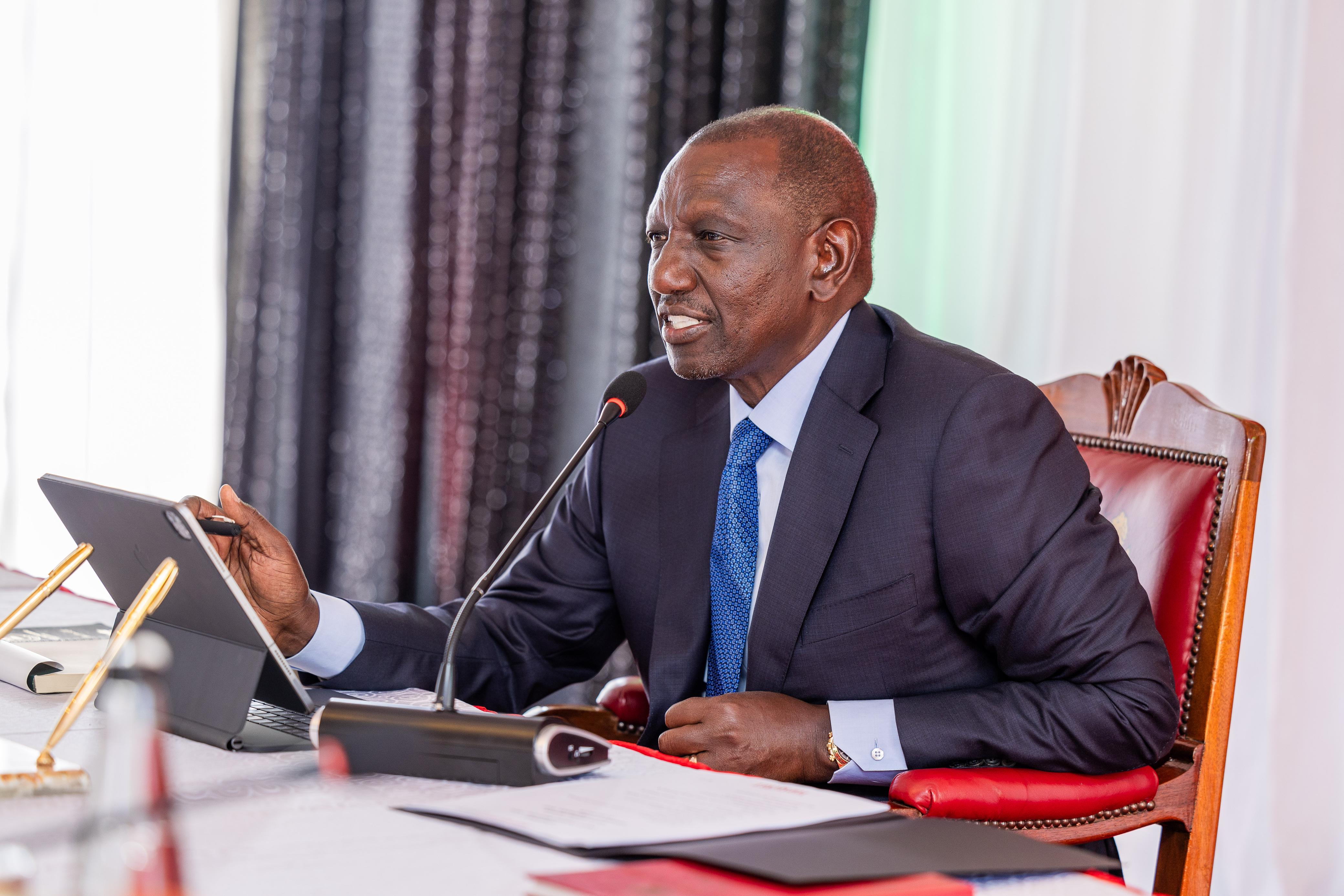


Anti-graft sleuths could raid your house and cart away property of interest without a court order.
The Independent Electoral and Boundaries Commission is also being given powers to bar graft suspects from seeking elective posts.
If charged with corruption, you could go to jail in just six months if found guilty. Why?
Graft cases would only take six months in the magistrate’s court, three in the High Court and six months in the Court of Appeal.
These are part of radical proposals by President William Ruto’s team through the office of the new Attorney General Dorcas Oduor.
If enacted into law, graft suspects could also lose their prime assets to the state even if that particular asset is not proceed of crime.
“Where the court is satisfied that the property which is the subject of the application constitutes proceeds of corruption, the court may order the forfeiture of the property or another property belonging to the respondent of corresponding value,” the bill reads.
“The court may order the payment of income or benefits derived from the property or payment of compensation.”
The bill is also seeking to lower the threshold of evidence that the anti-graft agencies would be presenting before the courts.
If approved, the anti-corruption agencies would not be required to present witnesses to prove the eligibility of information adduced as evidence.
Many EACC cases have collapsed for among reasons that detectives didn’t follow official channels to obtain evidence.
Anti-graft agencies are also being allowed to monitor call data of graft suspects, besides their bank and mobile transactions.
The inspections would also cover accounts held in non-banking financial institutions, mobile money and money transfer accounts.
Ruto, appearing to be passing a strong message that ‘enough is enough’, also seeks to protect witnesses more, including getting them new identity documents.
Should Kenyans agree with the proposals drawn by Oduor, those with integrity issues could also miss out on state jobs.
“The Ethics and Anti-Corruption Commission may furnish the recruiting entity or the IEBC with a report containing appropriate recommendations in respect of a request [by recruiting entity or IEBC].”
EACC, in the proposed dispensation, would consult other law enforcement agencies, and professional bodies linked to the candidate.
“The recruiting entity or IEBC shall consider the recommendations of the commission in determining the suitability of a person to hold a state office or public office,” the proposed Anti-Corruption Laws (Amendment) Bill, 2025 reads.
Upon assuming office, President Ruto was heavily criticised over a section of his troops whom he hired yet faced graft charges in various courts.
The events stirred grumbles among anti-graft crusaders, including state agencies tackling corruption, about Kenya Kwanza commitments to the fight.
This was worsened by the high rate at which high-profile cases collapsed at the courts or were withdrawn by the prosecutor.
But when he addressed MPs in November last year, Ruto set a different tone, firing a warning shot at the lawmakers and the concerned agencies.
“It will not be business as usual,” he said.
The President said it was time the EACC, ODPP, DCI and Assets Recovery Agency acted.
“Rise up to meet the people’s expectations on matters of integrity,” he said in an address to MPs, saying his team would present new laws to that effect.
The proposed law, coming hot on the heels of his assertions, also seeks to speed up the pace at which graft cases are heard.
It would also be an offence to give or agree to influence, or offer an advantage to another person to influence the decision of a public officer.
These would be in efforts to obtain any work, employment, a contract or other benefit from a public agency.
“A person commits an offence if that person solicits, accepts, or obtains an advantage from another person for him or herself…in order to make use of his or her influence real or fictitious, to obtain work, employment, a contract or other benefit from a public body,” the bill reads.
It also seeks to provide that the Director of Public Prosecutions explains, every three months, why he or she has not prosecuted cases presented by investigative agencies.
According to the bill, procurement officers, who will be convicted of graft, would be barred for 10 years.
Ruto is further seeking to give EACC powers to summon a witness in a matter under probe to appear at a police station, county office, or chief’s office.
Detectives are being given powers to compel the appearance of a person they believe has information that may assist in investigations.
“A person who fails to comply commits an offence and shall be liable, on conviction, to a fine of Sh300,000 or three years in jail or both,” the bill reads.
On officers charged with graft, the proposed law seeks to expressly provide that suspension includes withdrawal of powers and privileges.
“Suspension means temporary withdrawal and deprivation of powers and privileges in an office including accessing the office, discharging duties of the office, participating in decision making in or by the office, supervising any subordinate office and performing any of the functions related to that office,” the bill suggests.
There has been confusion in regards to implementing what constitutes an officer stepping aside when charged or facing graft charges.
State officers would also be charged a fine of Sh5 million or be jailed five years for failing to declare bank accounts outside Kenya.
It also seeks to provide that any Kenyan would apply to the High Court to pray for the removal of a state officer who held dual citizenship but fails to renounce one after winning the elections.












